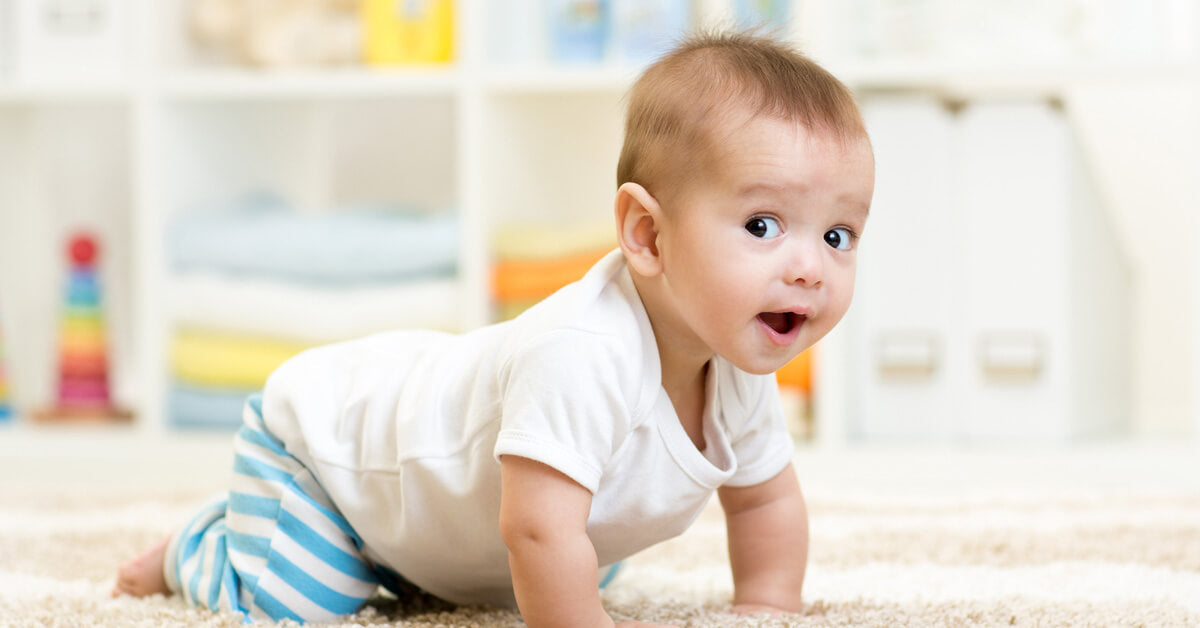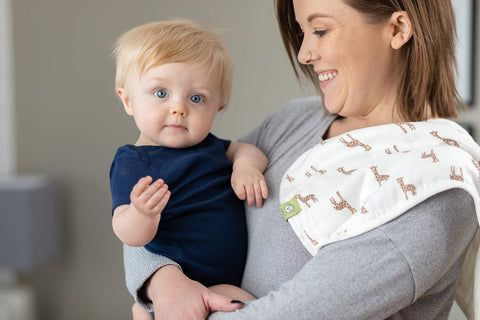
Understanding and Supporting Babies’ Behavioural Development (part 2 of 2)
We must try to remember that behaviour is learnt, that we have the power to influence a babies’ behaviour positively or negatively and that we need to set our expectations based upon their developmental ability, circumstance and age.The part one of this article made us understand infant behaviour without putting pressure on ourselves for our little ones to develop in exactly the same way others do. Behaviour is a form of communication, it is normally a response to something they like, something they find threatening, something they are curious about, or a way of telling you what they need. The experiences we have when we are little shapes the way we respond to the world. The way a baby learns about the world is through their relationship with their primary caregiver (normally a mum or dad). Hence knowing how to support them early is very important.
Can babies have behavioural problems?
I really struggle with the idea of pathologising children when they are so young. Labels at such a young age can have really negative implications for how children understand themselves and others see them. We must try to remember that behaviour is learnt, that we have the power to influence a babies’ behaviour positively or negatively and that we need to set our expectations based upon their developmental ability, circumstance and age. In fact, I think we often do infants a disservice, believing that they have more control over their behaviours than they do and that what they are doing is designed to intentionally annoy when developmentally neither is possible.
Although infants are rarely diagnosed as having behavioural problems, some do struggle more than others. Such difficulties need unraveling – they are often understood in the context of their attachment relationship but can be hard to identify given their development is so rapid at that age and much of what they are showing might be developmentally normal (if excessive at times).
Despite this, there is some evidence that babies who show a lot of behavioural dysregulation (such as higher levels of hitting and biting, being very withdrawn and fearful, consistently struggling to sleep or eat and crying too much or too little) may continue to struggle – these difficulties can be quite stable and do not always remit.
If you are concerned that your babies’ behaviour is very different from their peers then it may be worth going to your pediatrician for early identification and prevention. It could relate to a number of issues and may be worth looking at their development across a range of areas such as hearing, sight, developmental delays, feeding problems and/or possible genetic or neurodevelopmental disorders such as autism (although this often isn’t diagnosed until the age of 3, or later).
Our own wellbeing can also have an impact on babies’ behaviour – they pick up on parental stress more than we realise so if you are struggling to bond with your baby or cope with your own mental health then it is important that you seek help for yourself. It’s also important to consider whether there have been significant changes for your infant as this can also affect their behaviour.
What we must remember is that everyone is unique. Some babies will be more vulnerable to developing behaviour problems even before they are born. However, we know that the key to minimising the impact of biological factors is the environment they live in and the support they receive. One size doesn’t fit all and, as parents, we need to tune into and attend to our babies’ individual needs, whatever they might be.
How do we support a babies’ emotional and behavioural development?
“When you support a babies’ emotional world you are also supporting their behavioural development”
Look after yourself. Babies find life easier when they are in a safe, predictable and nurturing environment and with parents who notice what they need and provide it. This is harder to do when we are in a difficult place. After all, emotions are contagious (and physiologically so). If we are trying to support our babies’ development then we need to look after ourselves. You know the old saying that we need to put our own oxygen masks on first – that’s so true, particularly when we have little ones who make life rather fraught!
Tune in to their internal world. The most important thing we can offer children is understanding. We need to tune into their internal world and work out what they are trying to tell us. If we are available, we are much more likely to get it right, it just takes a bit of practice. Tina Payne-Bryson and Dan Siegel’s book “The Power of Showing Up” explains why just being available is important in developing a secure attachment relationship. The more able we are to meet a child’s emotional needs in a timely way, the easier their behaviour will be to manage.
Try to externalize the behaviour. It can be hard for us when our boundaries start being tested and our cute compliant baby becomes a little tyrant! Of course, we need to steer them in the right direction and help them learn what is, and is not, OK. However, when we remember that these behaviours are normally about exploring the world or struggling to cope, it is easier to support them rather than feel we have to punish them. Yes, redirect what they are doing but still show you accept them for who they are.
Try to stay connected whilst correcting what they are doing and talk about the behaviour being unhelpful rather than them being naughty or bad. This goes a long way in helping them feel understood as well as reducing the chance that they will develop lots of shame about who they are (which has really negative implications for longer-term emotional and behavioural development). Setting non-shaming limits is key as they will learn that they are still loved even though you are asking them to do something they may not want to do.
Talk about feelings. Young babies haven’t got a clue what they are feeling, they just show you however they can! However, if we can label what they are feeling and help them manage it they will start to learn this skill themselves. We need to remember that children’s expressive language (ability to talk) is slower to develop than their receptive language (ability to understand) so putting feelings into words can help from a very early age, and is a good habit to get into. When we know what we are feeling it’s easier to manage both the emotion and the resulting behaviour.
Focus on what is behind the behaviour rather than the behaviour itself. Try to unpick what is behind the behaviour rather than trying to change the behaviour. You can either put a sticky plaster on a cut knee with a splinter on or you can take the splinter out. It may take more time but it will work better in the longer term. Mona Delahooke’s brilliant book Beyond Behaviours talks about this in more detail. Well worth a read.
And last, but certainly not least, try not to compare your baby with others. Each baby needs parenting that is sensitive to their individual needs. You are the expert and the best person to provide this as you grow together and get to know each other. The first two years are like a whirlwind. Try to enjoy it when you can, but don’t beat yourself up when you don’t.
|
|
Meet Our Guest Writer: Dr. Sarah Mundy Dr Sarah Mundy is a Consultant Clinical Psychologist (BSc., MSc., PDClin) and author of Parenting Through Stories. She has worked with children and families for 20 years and has specialised in helping parents connect with their children and support them with their emotional wellbeing, particularly those who have been through early adversity. Sarah also writes articles for various publications and has the occasional appearance on BBC television on radio. She lives in beautiful Cornwall with her three children and partner. You can also access free resources and parenting advice through www.parentingthroughstories.com, Instagram (@parenting_through_stories), Facebook (@parentingthroughstories) and Twitter (@bartley_bear). |


























































